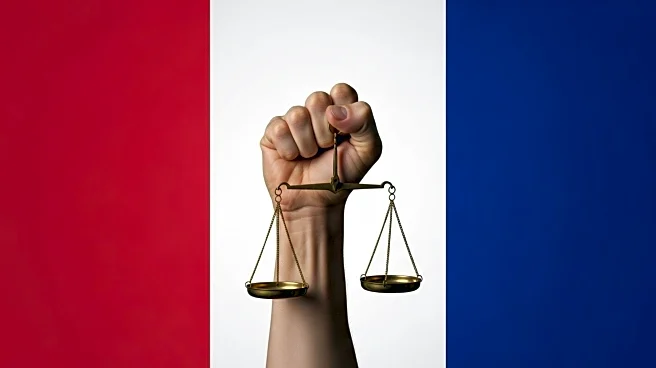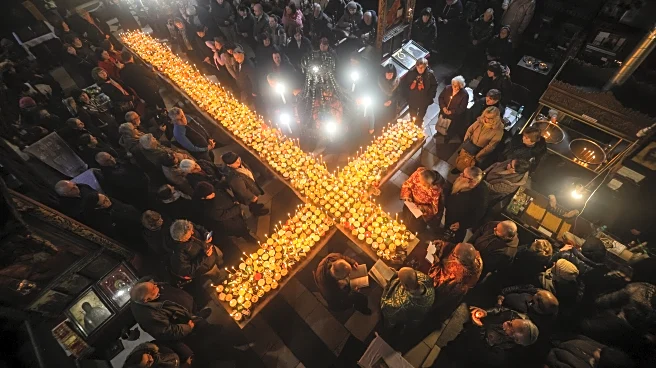What's Happening?
Hundreds of thousands of protesters in France participated in anti-austerity demonstrations, urging President Emmanuel Macron and Prime Minister Sebastien Lecornu to reconsider planned budget cuts. The protests, organized by labor unions, included teachers, train drivers, pharmacists, and hospital staff. Demonstrators are demanding increased public spending, higher taxes on the wealthy, and the reversal of pension reforms. The protests come in response to fiscal plans from the previous government, which included a 44 billion euro budget squeeze. The new Prime Minister, Lecornu, has not yet decided on these plans but has indicated a willingness to compromise. The protests have led to significant disruptions, including strikes by school teachers and regional train workers.
Why It's Important?
The protests in France highlight the tension between government fiscal policies and public demand for social welfare. The demonstrations reflect widespread dissatisfaction with austerity measures, which are seen as disproportionately affecting public services and the working class. The situation poses a significant challenge for President Macron and his government, as they must balance fiscal responsibility with social equity. The protests also underscore the political pressure on Macron's administration from both left-wing parties and investors concerned about France's budget deficit. The outcome of these protests could influence future government policies and the political landscape in France.
What's Next?
The French government faces a critical decision on how to address the demands of the protesters while managing the country's budget deficit. Prime Minister Lecornu's response to the protests and his approach to the budget will be closely watched by both domestic and international stakeholders. The government may need to engage in negotiations with labor unions and other political parties to find a compromise that addresses public concerns without jeopardizing fiscal stability. The situation could also lead to further political mobilization and influence upcoming elections in France.











